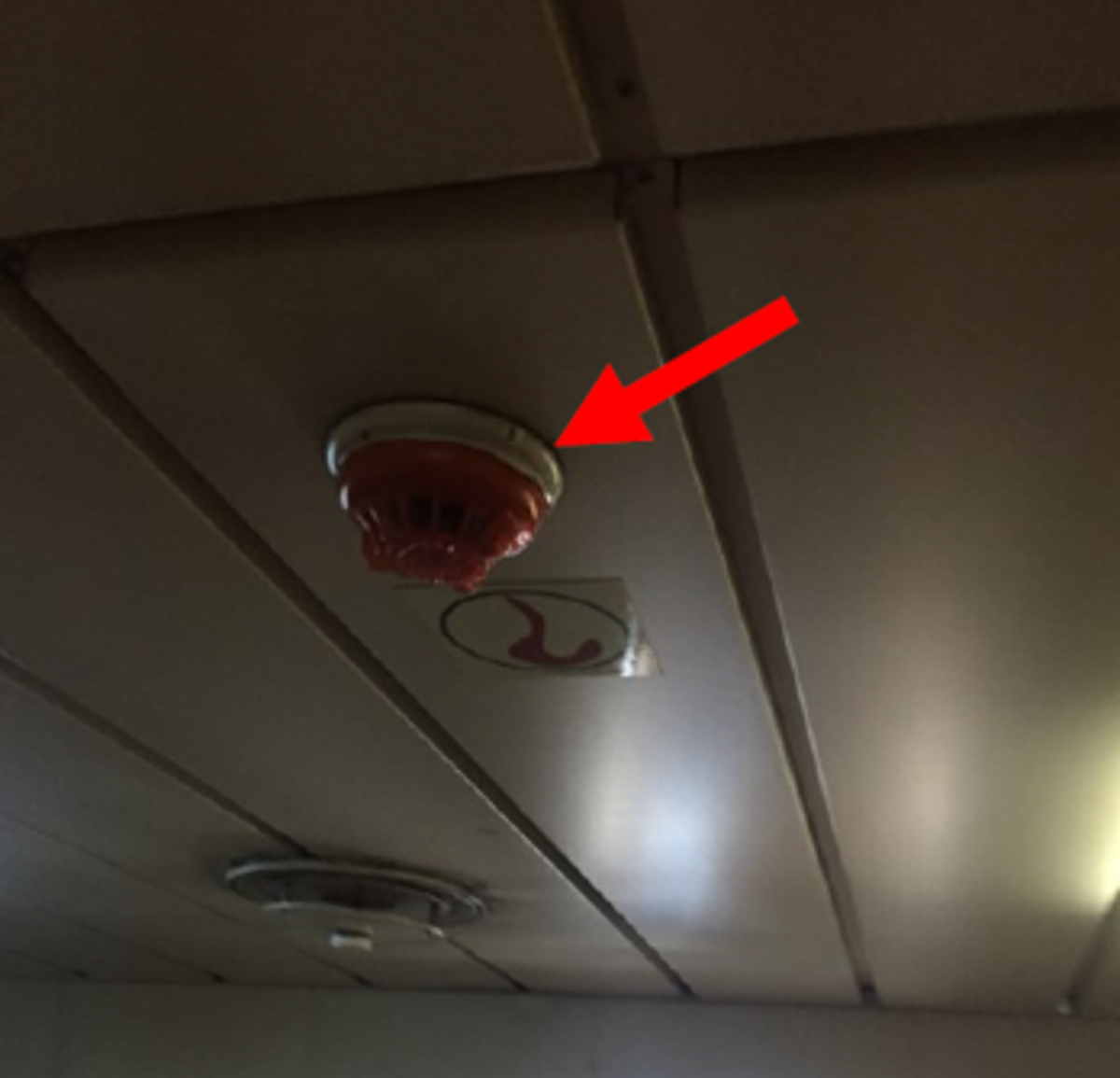Plastic cover on smoke detector
- Safety Flash
- Published on 19 February 2020
- Generated on 20 February 2026
- IMCA SF 06/20
- 1 minute read
Jump to:
What happened?
During an inspection of vessel accommodation by shore management, it was observed that a plastic cover was obstructing a smoke detector.
During construction work in the area, the cover had been used to prevent activation of the detector, but was not removed when the work was finished.

What were the causes?
- Lack of risk perception – smoke detectors are designed to warn individuals that something is on fire. A plastic cover will prevent it from working.
- Stop Work Policy was not applied – crew must have seen it but did nothing about it! No-one challenged this unsafe practice.
- Inspections were not conducted – this illustrates the importance of periodic inspection of fire protection systems to ensure that they are maintained in serviceable condition.
What actions were taken?
- Our member arranged a “Time Out for Safety” with all vessels’ crew to emphasise the hazards associated with blocking and covering of smoke detectors.
- Further fire inspection was conducted on-board the vessel to check the condition of the other smoke detectors.
Related Safety Flashes
-
IMCA SF 32/16
29 November 2016
IMCA Safety Flashes summarise key safety matters and incidents, allowing lessons to be more easily learnt for the benefit of the entire offshore industry.
The effectiveness of the IMCA Safety Flash system depends on the industry sharing information and so avoiding repeat incidents. Incidents are classified according to IOGP's Life Saving Rules.
All information is anonymised or sanitised, as appropriate, and warnings for graphic content included where possible.
IMCA makes every effort to ensure both the accuracy and reliability of the information shared, but is not be liable for any guidance and/or recommendation and/or statement herein contained.
The information contained in this document does not fulfil or replace any individual's or Member's legal, regulatory or other duties or obligations in respect of their operations. Individuals and Members remain solely responsible for the safe, lawful and proper conduct of their operations.
Share your safety incidents with IMCA online. Sign-up to receive Safety Flashes straight to your email.